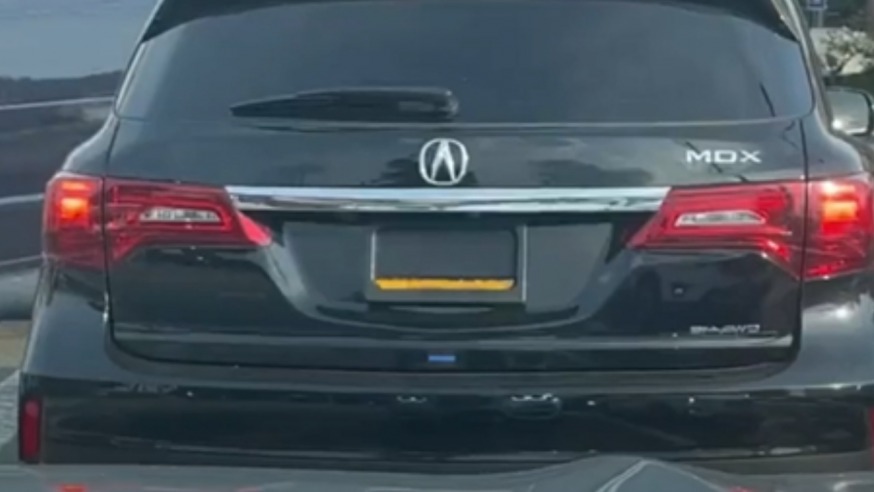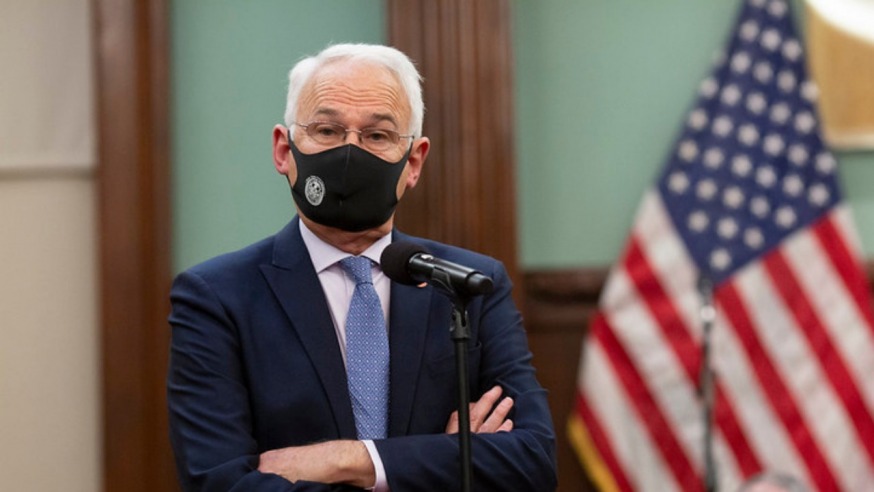
The City Council passed legislation Thursday that makes it illegal to sell products designed to hide vehicle license plates (Image and video provided by Council Member Robert Holden’s office)
Dec. 13, 2021 By Michael Dorgan
The City Council passed legislation Thursday that makes it illegal to sell products designed to hide vehicle license plates.
The bill, which was introduced by Council Member Robert Holden, bans merchants from selling products that obscure tags or make them unreadable to speed and toll cameras.
Holden’s bill targets people who sell and distribute such materials since it is already an offense for motorists to put these products on their plates.
Under the new legislation, the penalty for the first violation would start at $300—and for any subsequent offense $500 or more.
Some of the products the merchants sell include plastic or glass coverings, which are placed over license plates to blur out numbers and letters. The coverings are illegally used by motorists looking to avoid paying tolls and to prevent them from being caught on speed or red light cameras.
Other items being sold include substances that are sprayed on tags that distort the images captured by speed and toll cameras—yet don’t affect their readability to the naked eye.
More high-tech concealing products include electrical shutters, which cover vehicle plates at the press of a button.
Holden said that the plates are typically used by people who pose a danger to other motorists.
“These products have no purpose but to be installed to intentionally violate the law… so that the scofflaw driver can commit crimes,” Holden said in a statement.
“Those who sell these products… must be deterred from trading in them or face a penalty. This bill will give law enforcement the means to make our streets a little safer.”
Holden’s bill passed the City Council with a 47-0 vote. It will now go to the mayor to be signed into law.

Council Member Robert Holden, pictured, introduced a bill that aims to ban the selling of merchandise which helps make license plates unreadable to speed and toll camera (Emil Cohen/NYC Council Media Unit)
One Comment

I’ve seen in Queens so many cars (NY and especially out of state license plates) with plastic covers on them. Aren’t tinted windows illegal too?